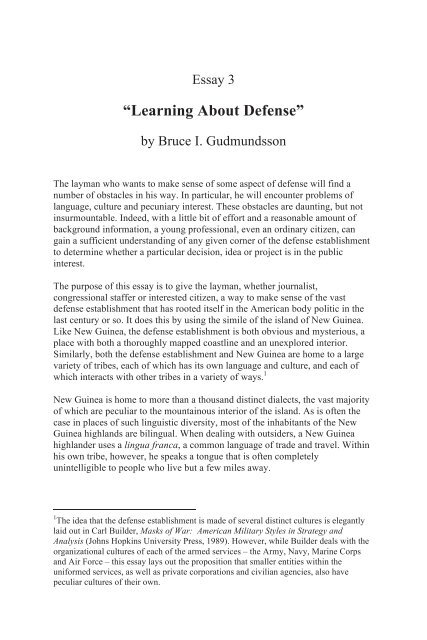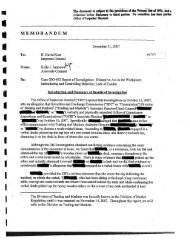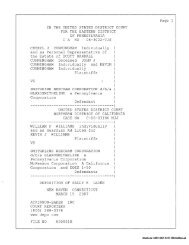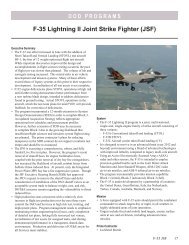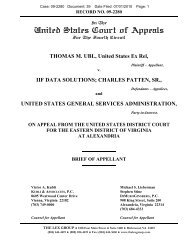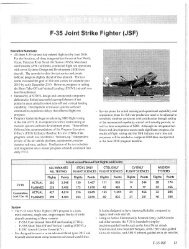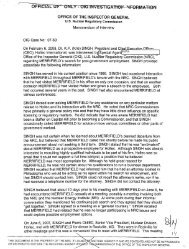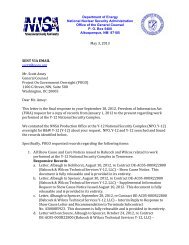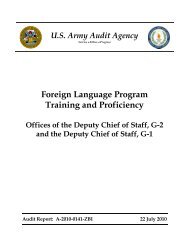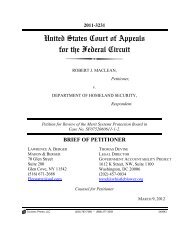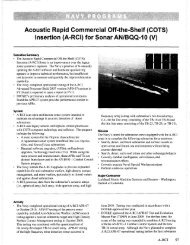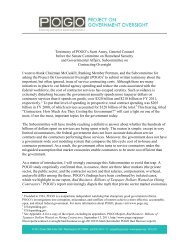The Pentagon Labyrinth
The Pentagon Labyrinth
The Pentagon Labyrinth
Create successful ePaper yourself
Turn your PDF publications into a flip-book with our unique Google optimized e-Paper software.
Essay 3<br />
“Learning About Defense”<br />
by Bruce I. Gudmundsson<br />
<strong>The</strong> layman who wants to make sense of some aspect of defense will find a<br />
number of obstacles in his way. In particular, he will encounter problems of<br />
language, culture and pecuniary interest. <strong>The</strong>se obstacles are daunting, but not<br />
insurmountable. Indeed, with a little bit of effort and a reasonable amount of<br />
background information, a young professional, even an ordinary citizen, can<br />
gain a sufficient understanding of any given corner of the defense establishment<br />
to determine whether a particular decision, idea or project is in the public<br />
interest.<br />
<strong>The</strong> purpose of this essay is to give the layman, whether journalist,<br />
congressional staffer or interested citizen, a way to make sense of the vast<br />
defense establishment that has rooted itself in the American body politic in the<br />
last century or so. It does this by using the simile of the island of New Guinea.<br />
Like New Guinea, the defense establishment is both obvious and mysterious, a<br />
place with both a thoroughly mapped coastline and an unexplored interior.<br />
Similarly, both the defense establishment and New Guinea are home to a large<br />
variety of tribes, each of which has its own language and culture, and each of<br />
which interacts with other tribes in a variety of ways. 1<br />
New Guinea is home to more than a thousand distinct dialects, the vast majority<br />
of which are peculiar to the mountainous interior of the island. As is often the<br />
case in places of such linguistic diversity, most of the inhabitants of the New<br />
Guinea highlands are bilingual. When dealing with outsiders, a New Guinea<br />
highlander uses a lingua franca, a common language of trade and travel. Within<br />
his own tribe, however, he speaks a tongue that is often completely<br />
unintelligible to people who live but a few miles away.<br />
1 <strong>The</strong> idea that the defense establishment is made of several distinct cultures is elegantly<br />
laid out in Carl Builder, Masks of War: American Military Styles in Strategy and<br />
Analysis (Johns Hopkins University Press, 1989). However, while Builder deals with the<br />
organizational cultures of each of the armed services – the Army, Navy, Marine Corps<br />
and Air Force – this essay lays out the proposition that smaller entities within the<br />
uniformed services, as well as private corporations and civilian agencies, also have<br />
peculiar cultures of their own.


